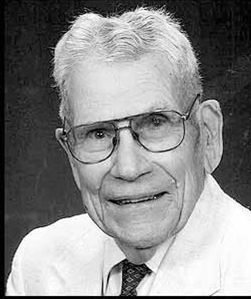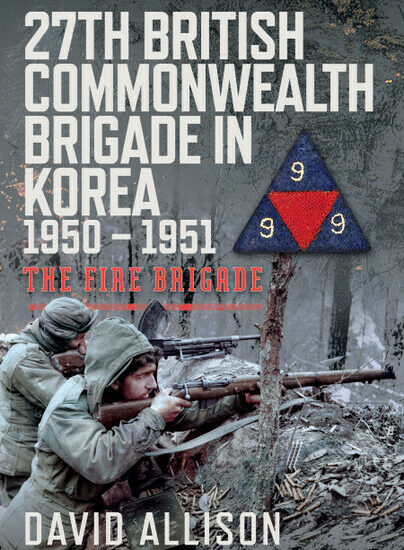Author Guest Post: Bryn Evans
Airmen’s Incredible Escapes
A message for future generations
In the latest book by Yorkshire born author Bryn Evans, Airmen’s Incredible Escapes, the resilience and self-sacrifice of the human spirit belie the horrors of war, in a message for us today and for future generations.
Flying Officer Penny decided to knock on the back door of a small house. He did so as quietly as he could, so that only someone inside the house could hear. Eventually a startled householder opened the door. Penny flapped his arms nervously like a bird and whispered, ‘RAF, RAF’. In that instant Penny did not know whether he was confronted by a Nazi supporter or not.
On the night of 31 August 1943, after baling out of his doomed Halifax bomber, Penny landed in countryside somewhere near the Dutch-German border. On which side he did not know, and he was desperate to find shelter before dawn. He moved from cover to cover stumbling into unforeseen obstacles, until he arrived at what looked to be a small farming village. Penny crept along the blacked-out streets, ducking from one building to another. In the end, finding no access to any building to hide, he decided to take a chance on this small house.
The man in the doorway instinctively ushered him at once into his back room. It turned out that Penny was in the small Dutch town of Ossenzijl, and the house-owner was Jan de Boer, who seemed welcoming. Once de Boer had apparently satisfied himself that Penny’s scruffy appearance and distressed state of mind was authentic, he gave him some food, and did his best to make him comfortable.
Fear of arrest by the Gestapo was pervasive amongst the civilian population. Even a sympathiser with the Allied cause might have slammed the door in Penny’s face. A Gestapo ploy at the time was for one of them to pose in a discarded blue battledress of a captured or dead RAF airman, in order to infiltrate the resistance and escape organisations in occupied countries. Penny had been lucky. It could have been so different.
*
In the Second World War some airmen survived being shot down, baling out, crashing their aircraft into the ground, ditching into water, or evading the enemy while on the run, and did so in countless number of ways to make a miraculous escape.
When an aircraft was shot down, and if aircrew survived baling out, or a crashed landing, life or death remained a lottery. They became desperate to evade being captured by enemy forces. An unknown number, while floating down by parachute, were machine-gunned to death by enemy fighters. Many who were taken prisoner on the ground, were summarily executed by enemy forces or their civilian supporters. In German cities many civilians looked upon Allied aircrew as ‘terrorflieger’, and subjected downed airmen to the instant justice of the mob.
Yet amidst the hate, death, destruction, and worldwide misery of the Second World War, humanity’s instinctive kindness, care and selfless generosity towards fellow human beings still thrived, and was found in some most unlikely places. Aircrew brought down in enemy territory were only able to survive with assistance from either local civilians or enemy forces.
In one of the stories in Airmen’s Incredible Escapes a USAAF fighter pilot bales out into the dense jungle of New Guinea. After wandering for seven days lost and near delirious, Flight Lieutenant Gene Rehrer had reached the point of total collapse, when tribesmen from the Brown River village came upon him. They carried him back to their village, gave him water and food, then after a few days of rest, put him on a donkey and guided him to a European settlement.

On a Dutch beach Flight Lieutenant Eric Maher lay supine, soaking wet, critically wounded and unable to walk, he would soon freeze to death. Rather than allowing their troops to finish him off, or leave him to die, two German officers took off their winter greatcoats, covered him to keep him warm and alive, and with two of their men took him into custody and to a hospital for emergency surgery.
Shot down over Japanese territory and into the mangrove swamps of the Burmese jungle, Flying Officer Barney Barnett wandered on bare feet that were ripped and ragged. After four days without food or water he could walk no further, when he was found by some local villagers. At risk of certain death and their village being destroyed by the Japanese, they gave Barnett water, bathed him, then carried him across a river and handed him over to an advance party of British troops.
To also evade capture by the Japanese, Flying Officer Allan Liedl and three other aircrew of an RAAF Catalina flying boat spent nearly two months lost in the jungle of New Britain, an island off New Guinea. Living solely off local vegetation they had become almost too weak to move any more, until by chance a local villager caught sight of them. Despite the close proximity of Japanese troops, and if caught their execution and destruction of their village and families, the tribesmen gave them shelter, food and water, and then guided them over the mountains to a friendly European settlement.
Having parachuted down near the Dortmund-Ems canal in Germany, Flight Sergeant Harry Howard lay bleeding in a ditch. With a lacerated and near severed arm, hip and back injuries, he was unable to walk, and likely to bleed to death. By chance a sympathetic German farmer found him, took him back to his farmhouse, and arranged for his transport to hospital.
*
These stories and many others in Airmen’s Incredible Escapes are astounding, and each one in many and different ways unique. Perhaps the most remarkable and wonderful aspect is that so many airmen owed their survival to the help and kindness of perfect strangers.
The civilian ‘Helpers’ of shot-down airmen in each country risked their lives and their families. If caught, in Nazi occupied Europe it meant torture at the hands of the Gestapo to provide information on other resistance members. Then if they survived the torture, they and their families would be either sent to a concentration camp or executed. The ‘Helpers’ in all countries knew the risks they were taking. Like the airmen they too were hostage to fortune, and their courage was just as incredible.
In the Second World War millions of civilians, subjected to indiscriminate bombing from the sky, put to flight from a battleground, or forced into slave labour by the brutality of occupying armies, lived with the threat of death at any time every day. In all theatres of the Second World War civilians were subjected to death and destruction from air raids, most notably and severely in Britain, Germany, Italy, Nazi-occupied Europe, and Japan. The impact of air raids either through inaccurate marking of targets or deliberate area bombing, is well illustraed by the results of RAF bombing operations against Hamburg.
At the city’s Ohlsdorf cemetery four mass graves laid out in the shape of a cross, and a memorial to all those civilians not found, bear witness to some 55,000 victims of the bombing campaign. The number of injured, permanently disabled and maimed for life, both physically and mentally must be many more. It is said that Hamburg’s Ohlsdorf cemetery is the largest in the world. Unlike Ohlsdorf the toll on the mental health of everyone everywhere went unrecognised.
*
Now I have something of an understanding, a partial insight into the trauma, anxiety and fear experienced during the Second World War, by both those in the armed forces and civilians of my parents’ generation. The worldwide COVID pandemic has given me a glimpse, a fleeting feeling of what they endured, what they lived through, or succumbed to in nearly six years of war. Worry, anxiety, fear, the dread of losing a loved one, were constant companions, ready to torment their minds.
Whether in uniform or not, no-one could plan ahead for their personal life. My father served in RAF Bomber Command, and spoke of looking upon the empty chairs in the mess each morning, of those who had been lost during the night’s operations. My mother told me of lying in bed in the months before I was born, and listening to the Luftwaffe bombers droning overhead. My mother-in-law worked for a time in an ammunition factory in London, where one night she was blown off her feet into the road by an exploding bomb. My father-in-law served in a British infantry regiment in North Africa and Italy, where he was wounded but survived. For six years no-one knew when the war or their lives would end.
Recalling my childhood in the late 1940s and 1950s, it is now clear why there was so little talk of the war. It had been a nightmare everyone wished to forget. But we must not forget. The greatest generation left us a legacy, a priceless gift that we must always treasure. They found within themselves a fortitude and resilience to live each day as if it were their last. It is an example we and future generations must emulate. The stories in Airmen’s Incredible Escapes are an inspiration, and leave a message for us all, and future generations.
***
The early reviews of Airmen’s Incredible Escapes are excellent, and Bryn has begun research for a follow-up sequel of similar, miraculous survival stories. Veterans, their families and friends, who would like to contribute, can contact Bryn by email – bryn.evans@ozemail.com.au.
Bryn Evans


